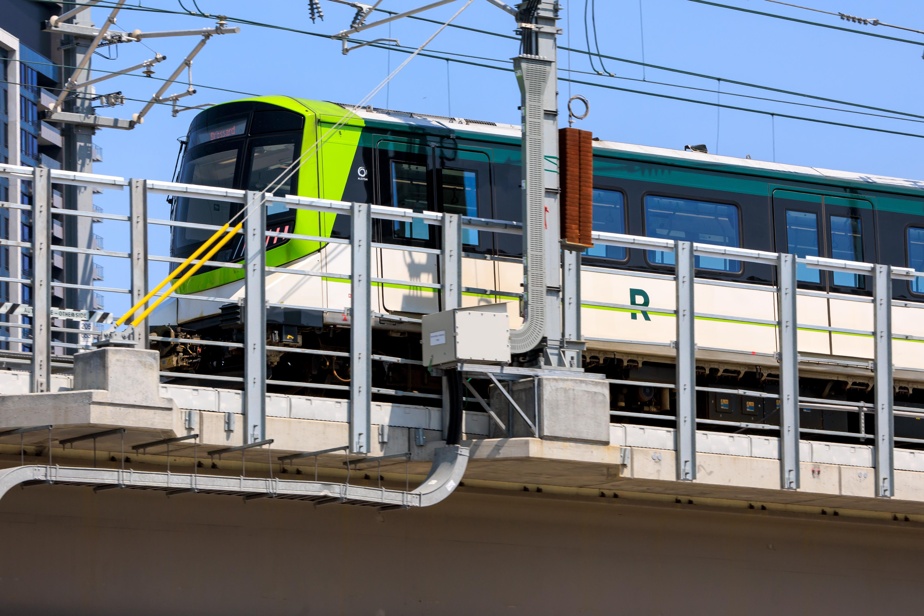Scheduled by the end of spring, the commissioning of the REM between Brossard and Montreal’s Central Station has been postponed for a few days or even weeks, La Presse has learned. The crucial “blank run” stage has not even begun. The total cost of the project will be revealed after the first starts: it will exceed the 7 billion dollars announced so far, while an increase of at least 30% cannot be excluded.
According to our information, the tests to ensure the reliability of the system are longer than expected, but do not suggest that a major problem is present. Integrating all the components of the system is a complex process.
Not yet launched, the “dry run” is however imminent: this means that the automated train will be operated as if it were in service, but without passengers on board. CDPQ Infra has already stated publicly that its objective is to obtain an overall reliability rate greater than 95% for at least 10 consecutive days.
It is only after this dry run, considered a dress rehearsal, that the date of the REM’s commissioning will be confirmed. It is certain that it will finally be at the beginning of summer, a few days or a few weeks after the end of spring according to our information.
CDPQ Infra spokesperson Jean-Vincent Lacroix declined to confirm or deny this information. He declined to give a specific date. He limited himself to a written statement: “We are almost there. As you can see, REM cars are everywhere on the network and we are in the very intensive phase of the final tests, but what matters first and foremost is that the user experience is optimal. from the first pass. When we have this certainty, we will be happy to communicate a specific date, but it is fast approaching.
CDPQ Infra is subject to a legal obligation to notify various partners at least 30 days in advance of when the train will be in service – including transport companies that must drop off users of their buses to REM stations. As May 21 approached, pressure was high to confirm the train’s first departure. This notice will be given later given the postponement of the deadline by a few days or a few weeks. This will take place during or after the dry run stage, when CDPQ has the guarantee that its system is reliable.
On April 16, the CEO of the Caisse de depot et placement, Charles Emond, declared on the set of Tout le monde en parle that “so far, nothing [n’] indicates that the schedule of spring 2023, the spring goes until June 20, is not going to hold. For the moment, everything is in line with the timetable that we have given. “We are quite confident, but there are still tests to be done,” he added, specifying that the commissioning would take place “on a Friday”.
Invited to comment on this new deadline, Michel Archambault, professor emeritus in the department of urban and tourism studies at UQAM, insisted on the importance of not missing out.
“Strategically, they [CDPQ Infra] are better off being sure that the REM works when it’s turned on. Otherwise, the notoriety and reputation of the project will take a hit. »
“We’ll forgive them for the delays, but we wouldn’t forgive them a failure with glitches after go-live. They still have the benefit of the doubt to make us accept delays because we have to complete validation tests. »
Mr. Archambault mentions that summer is the ideal season to put the REM into service.
“It’s interesting in the summer because the season is favorable. The climatic conditions are at the Zenith and there is less traffic with the holidays. What is important to me is that the REM works well at the start of the school year in September because we will have schools, economic activity and everything else. »
The REM’s total bill will be revealed when the first section is put into service. It will be higher than the 7 billion announced so far. According to our information, an increase of at least 30% cannot be ruled out.





















